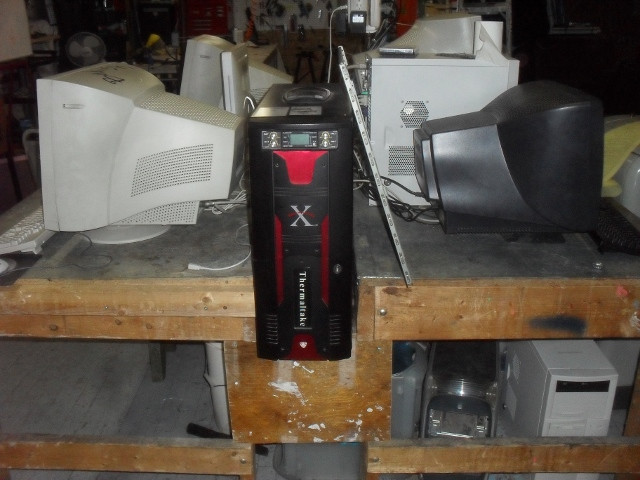Hack to Basics
Montreal’s Hacker Community Fights Misconceptions
Hackers have historically gotten a pretty bad rap in pop culture. They’re usually portrayed as greasy, lonely, creepy, shifty white guys who don’t know any girls, consume only junk food, and have questionable moral character.
Freed from some fundamental misconceptions, however, the term has a more positive connotation among people who actually know anything about computers.
Hacker culture actually encourages sharing knowledge and learning about technologies by building, modifying and creating.
“Crackers are the ones who break things, when hackers are the ones who build,” explains Concordia communications student Chistina Haralanova.
There is also an activist side to the hacker movement, which is called ‘hacktivism’—a way to protest through computer networks.
“The term refers to the freedom to use, modify, copy and share any software and hardware, skills and content,” said Haralanova. “Although a lot of people think of hacktivism and free software movement as necessarily political, it does not have to be.
“It’s not only about groups like Anonymous, but also people who enjoy inventing and creating. It is more about accessibility and freedom to use, modify and redistribute any software.”
She gives the example of WordPress, a popular website management platform. The users who find it handy and useful for their own purposes might not necessarily realize that it’s considered free software, but it is.
Hackers usually gather in ‘hackerspace,’ a term for any learning space where the member hackers can come together to discuss common interests like science, computers and software.
Montreal’s own ‘hackerspace,’ Foulab, is a non-profit organization that provides a collaborative environment for exploring new technologies and sharing knowledge and ideas.
The group started when a few interested hackers went to the Hackers on Planet Earth conference in New York City in 2008, and thought Montreal was missing out.
Three years later, Foulab is based in a warehouse apartment with a red flashing neon arrow sign. The apartment is large and open and complied with an organized mess of computers—but the hackers don’t mind. The St. Henri headquarters are abuzz with people, especially on Tuesdays, the lab’s open house day.
People come and go, exchanging ideas, developing projects and discussing upcoming workshops. Members are open to explain how the different tools work, and inform interested newcomers as to what Foulab is all about.
The organization offers workshops on varied topics, from building electronic circuits and making computers react to light and movement, to more unconventionally nerdy subjects like the basics of brewing, how to use dry ice or how to make mustard.
Sean, a founding member of Foulab who requestesd his last name not to be published, said the workshops have a hands-on approach. People from all walks of life come to their office. “There are people from high school as well as people outside of the educational system,” said Sean.
“The age varies greatly, from 17 to 60 years. As for gender, the ratio is similar to the engineering programs.”
Foulab even hosts ‘hackfem’ nights, every Wednesday from 6:00 p.m. to 10:00 p.m., a refreshing change from the usual male-dominated atmosphere.
“Here, no one is afraid to learn. Everyone helps everyone, and that’s the spirit of the hackerspace,” said Sean.
The space is full of eclectic possessions. It has a library with books on programming—from software to radio, among others—and a ‘museum’ houses a collection of old technological artifacts that people donated to the group. Random electronic parts are packed on shelves, used for projects and workshops.
One project that Foulab members are particularily proud of is an old NASA machine that was rebuilt as a Twitter teletype machine. The ‘tweletype,’ a machine about four feet tall, prints out a long, continuous stream of paper with Twitter messages on it and decorates the walls of the office.
Why so much emphasis on sharing the knowledge and access to the technology? MaxD, another founder of Foulab who requestesd his last name not to be published, said very few people know how their computers truly work.
By working with technology, learning the basics of programming and not being afraid of going beyond theory, anyone can learn how to fix their gadgets or understand the basics of software and programming.
This knowledge and these skills can help people become empowered and independent with the help of a community. Everyone is there to learn, and anyone is welcome—anyone can be a hacker; even you.
—with files from
Julia Jones & David Murphy


_600_832_s.png)
